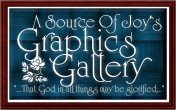Study Tips
The word on studying the Word. Read and consider the Biblical text and context first.
In a previous post (03/27/07), I mentioned the study tools that I use most of the time. I failed to mention that I use them in the order I had listed them: Bible, Strong's Concordance, Bible Dictionary, Expositor's Commentary.
I realize there are innumerable resources available on the internet and on software; I just have not gotten up to speed on that part of the information highway, yet. The more I check out the blogrolls and links the more great stuff I am finding. One I really like and find helpful is the Webster's 1828 Dictionary. You will find it in my 'Tools of the Trade' list.
When preparing a topical study, a good concordance will be your best friend. I like using the Strong's Concordance because it includes the Hebrew and Greek words and definitions. A Bible dictionary comes in handy when you need to know the meaning of people/places names. In biblical times you knew volumes about a city or person just by their name. Not so today.
Now days people name their children all kinds of things. I know a child named Lexus Mercedes ________. How do you think that child feels being named after cars? At least they are upscale cars. Some folks may still consider their child's future when choosing their name. I have heard of one named Jabez in the past few years. Now the name is biblical alright enough, but do the parents really know what the name means. I think they just like the part about the blessings. Really, who would want to call their child, "Pain" or "Misery"?
Back to the subject. I leave the commentary for last. Yes a commentary will have scholarly material and documented facts, but it will also have stuff that is strictly opinion. As long as opinions are clearly stated as such, I have no problem using the material. Kind of like blogs. I have gleaned much in reading them; but I always weigh the information with the Word of God.



